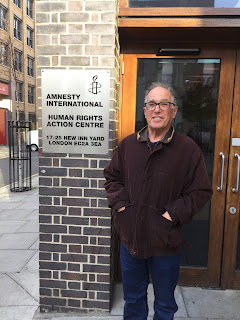Lewis Aptekar: Common Causes of Youth Homelessness
Lewis Aptekar has devoted a good portion of his career, not only
as a teacher, academic and researcher, but as an author and practicing clinical
psychologist, to the observation and study of homeless youth and children in
street situations (CSS); particularly those throughout developing countries.
Now retired from teaching, Aptekar has immersed himself within cultures
throughout such nations so as to obtain a firsthand account of the daily struggles
faced by members of the “street” and homeless population, as well as to better
develop recommendations for coping with and finding solutions to such issues.
The co-author of StreetChildren and Homeless Youth: A Cross Cultural Perspective (2014), LewisAptekar sought to provide the reader a closer examination of several factors of
both the children in street situations and the actual situations they face, and
of the current policies and procedures societies and nations have in effect
regarding this population. He ended the book with recommendations as to the
development of policies, procedures and research centered on this population in
the future.
As Aptekar knows, there are several generally accepted causes or
reasons for youth homelessness in both developing and developed countries. Some
of the more common reasons behind youth homelessness and the connection to
street life include:
Poverty
One of the primary causes of youth homelessness, particularly in
developing nations, is poverty; a condition that itself stems from multiple
causes and which is often a driving factor behind a youth’s involvement and
life on the street. The issues of hunger, unstable housing, and displacement
due to conflict/war can often lead a youth to seek a source of income or even
survival as part of the street population.
Family Conflict
Conflict with family members, abandonment, domestic violence,
substance abuse and escaping problems at home can all be factors contributing
to a youth’s homelessness.
Physical/Sexual Abuse
Enduring abuse at the hands of family members, whether that come
in the form of physical abuse, sexual abuse, neglect or general maltreatment
can often result lead to street involvement.
Mental Health
The existence and persistence of mental health issues or
conditions, be them misdiagnosed, undiagnosed or undertreated, is often a
factor behind youth homelessness.
Overall, poverty tends to be the most common reason for youth
homelessness in developing countries around the world, while family conflict
has recently been shown to be a primary factor throughout developed countries.
In addition to co-writing Street
Children and Homeless Youth, Lewis Aptekar is the sole author of In the Lion’s Mouth, Hope and Heartbreak in Humanitarian Assistance.







Comments
Post a Comment